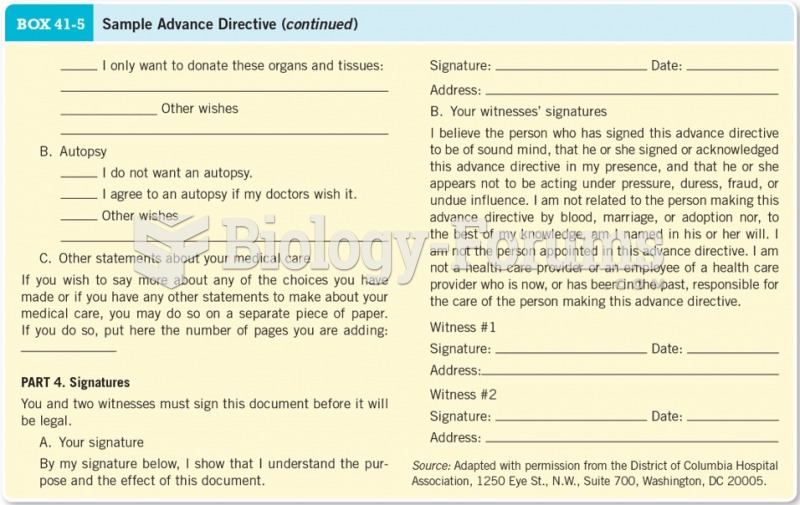|
|
|
Did you know?
On average, someone in the United States has a stroke about every 40 seconds. This is about 795,000 people per year.
Did you know?
The FDA recognizes 118 routes of administration.
Did you know?
It is difficult to obtain enough calcium without consuming milk or other dairy foods.
Did you know?
The modern decimal position system was the invention of the Hindus (around 800 AD), involving the placing of numerals to indicate their value (units, tens, hundreds, and so on).
Did you know?
Eat fiber! A diet high in fiber can help lower cholesterol levels by as much as 10%.







